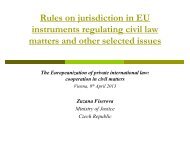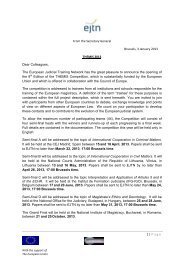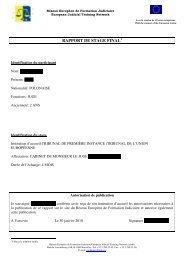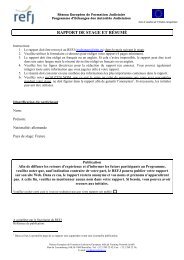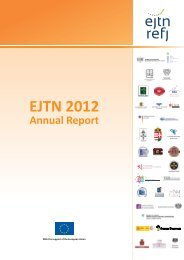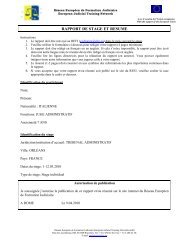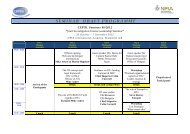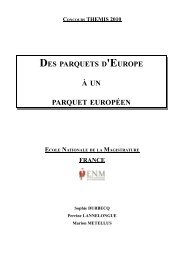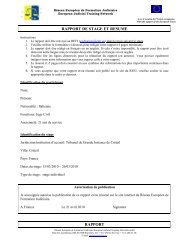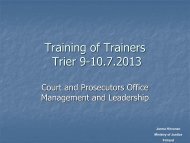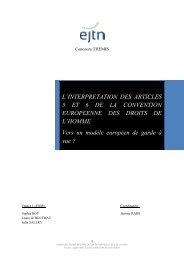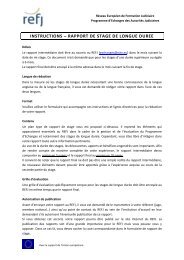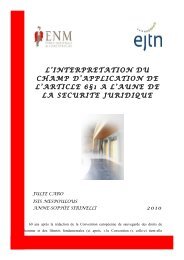European Criminal Justice - EJTN
European Criminal Justice - EJTN
European Criminal Justice - EJTN
- No tags were found...
Create successful ePaper yourself
Turn your PDF publications into a flip-book with our unique Google optimized e-Paper software.
<strong>EJTN</strong> training guideline in <strong>European</strong> <strong>Criminal</strong> <strong>Justice</strong> - Update 20114. TraineesTraining in this field should be addressed to practitioners who have a goodunderstanding of their criminal system and who can exercise their jurisdiction incases referred to it. Thus training is especially recommended for senior judgesand prosecutors.5. MethodologyA) Training method:Training should take the form of specialised seminars and workshops.B) Complementary e-learning:Complementary e-learning should be designated as a permanent method toupdate trainees, as the instruments are numerous and changes to the regulationframework are frequent.C) Priority: Training should have priority.D) Format:Training should take place on a national, trans-national and EU-wide levelIII. Multi-annual programmesTampere, The Hague, Stockholm programmesTo draw up policy guidelines and practical objectives for the area of justice andhome affairs, with a timetable for their attainment, the <strong>European</strong> Councilestablished multi-annual programmes of action. The first of these was approvedat Tampere in 1999. The <strong>European</strong> Council approved a programme of action forcreating an ‘area of freedom, security and justice’, covering civil and criminaljustice, visas, asylum and immigration, and police and customs cooperation. The'Tampere programme' was a five-year agenda that came to an end in 2004.The successor to the Tampere Programme was adopted in November 2004 in TheHague under the Dutch Presidency. The Hague Programme is a five-yearprogramme for closer co-operation in justice and home affairs at EU level from2005 to 2010. It aims to make Europe an area of freedom, security and justice.Immigration and asylum topped the Hague agenda alongside the prevention ofterrorism. EU leaders agreed to use qualified majority decision-making and codecisionin the fields of asylum, immigration and border control issues. Legalimmigration remains subject to unanimity. In the fields of justice and security,the Hague Programme highlighted the following key measures: policeinformation to be available to all EU countries, address the factors thatcontribute to fundamentalism and to the involvement of individuals in terroristactivities; make greater use of Europol and Eurojust, ensure greater civil andcriminal justice cooperation across borders and the full application of theprinciple of mutual recognition.21



